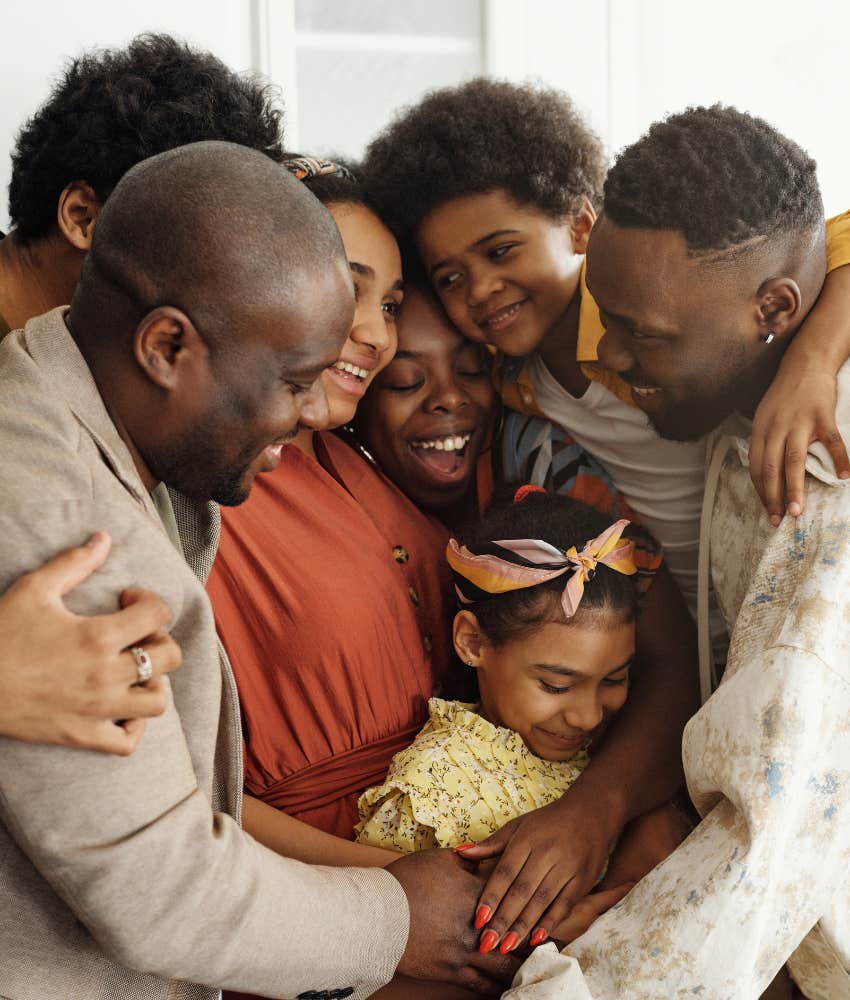Therapist Shares 5 Examples Of Generational Wealth That Have Nothing To Do With Money
They might just help you more than money ever could.
 Prostock-studio / Shutterstock
Prostock-studio / Shutterstock When we talk about generational wealth, we typically think of it in monetary terms, and that makes sense. CNBC defined generational wealth as “any kind of asset that families pass down to their children or grandchildren, whether in the form of cash, investment funds, stocks and bonds, properties or even entire companies.”
But what about things that can’t be quantified? Can assets stretch beyond just finances? One therapist thinks so.
Psychotherapist Bobbi Banks describes herself as a “therapist, coach, clinical supervisor and neuroscientist” on Instagram. She shares content related to her specialties and recently posted about her opinion on generational wealth.
Banks argued that generational wealth is not just related to the money someone is able to pass down but also to emotional resources that can be passed from one generation to the next.
Here are five examples of non-monetary generational wealth:
1. ‘Having parents who regulated their emotions’
Being raised by parents who know how to regulate their emotions is an essential part of growing up emotionally healthy.
According to Psychology Today, emotion regulation refers to “the ability to exert control over one’s own emotional state. It may involve behaviors such as rethinking a challenging situation to reduce anger or anxiety, hiding visible signs of sadness or fear, or focusing on reasons to feel happy or calm.”
Watching a parent lose control of their emotions could be extremely frightening for a child. It can also lead to things like anxiety, depression, and substance use, according to a study released by the National Institute of Health.
On the other hand, following in the footsteps of someone who can regulate their emotions would teach a child how to do the same and continue to do so as an adult.
2. ‘Seeing healthy coping mechanisms at home’
We tend to model what we see. So, if children see an example of healthy coping mechanisms, they can take that and learn to use it themselves in their own lives.
The Child Mind Institute said that “learning how to respond to [painful emotions] in healthy and sustainable ways is one of the most important lessons a child can learn. One of the best ways to help children navigate big feelings is through modeling healthy coping skills.”
If a kid watches their parents using healthy coping mechanisms, they are more likely to do the same themselves. These are habits that must be learned, and are not inherently known. Watching the person you look up to model these coping mechanisms will better prepare children for the struggles they will face in life.
3. ‘Witnessing supportive and healthy relationships’
It’s not uncommon for someone to seek out the kind of relationships they have seen in their life. If family members model unhealthy relationships, it makes sense that a child would grow up to think that is the norm.
Lambton Public Health wrote of the importance of showing children loving, supportive relationships. “Healthy relationship skills help children develop confidence, resilience, communication skills and maintain friendships,” they said. “You can help your child to learn the skills to form and maintain positive relationships, and by doing that you will be supporting mental well-being and helping to reduce the health impact of adverse experiences in childhood.”
Giving children the opportunity to witness these kinds of relationships will empower them to both treat others with respect throughout their lives and know that they deserve to be treated the same.
4. ‘Experiencing open and honest communication’
Open, honest communication is essential for any relationship to thrive. Growing up around people who are closed off is one way to ensure you are also closed off.
Better Health Channel said, “In relationships, communication allows [you to] explain to someone else what you are experiencing and what your needs are. The act of communicating not only helps to meet your needs, but it also helps you to be connected in your relationship.”
Communication is something else that you must be taught and for which you will model the behavior of those around you. Watching those you love use communication openly to positively affect relationships instead of the other way around is a game-changer.
5. ‘Living in a safe, stable and loving home’
Nothing is more comforting than knowing you are safe and secure. It’s like being wrapped up in a warm blanket. Trusting that you are loved and you don’t have to be afraid is something that is often taken for granted, but something to be grateful for all the same.
 August de Richelieu | Canva Pro
August de Richelieu | Canva Pro
A lack of safety or stability can lead to anxiety and other mental and emotional health challenges. Not having a bedrock foundation leaves you feeling lost and adrift, the exact opposite of what anyone wants.
UNICEF confirmed this. “Growing up in a loving and caring family is critical for children’s social, emotional, and intellectual stimulation and healthy brain development,” they said in a press release.
This is really the cornerstone of generational wealth being passed down in an emotional sense.
All of these things have something in common.
Each of these examples of generational wealth is just like money, or other financial assets, in the sense that they can be passed down. They develop early when one is a child and then follow you throughout your life.
All of these things go with you and grow with you and, in many cases, provide more comfort than money ever could.
Mary-Faith Martinez is a writer for YourTango who covers entertainment, news and human interest topics.

